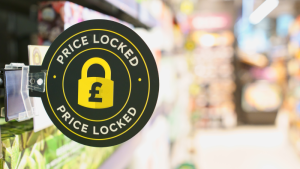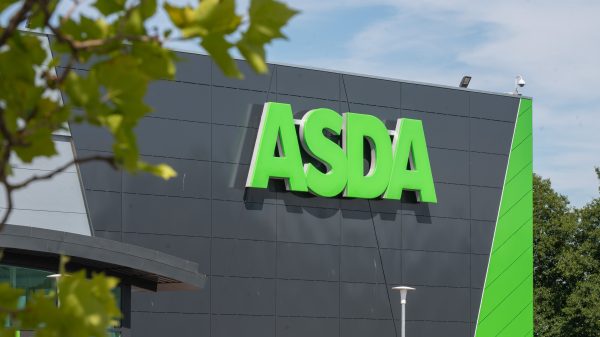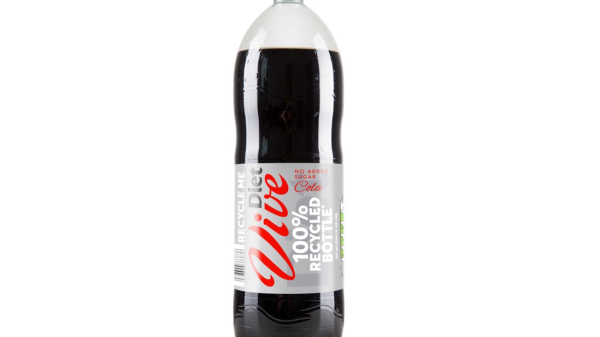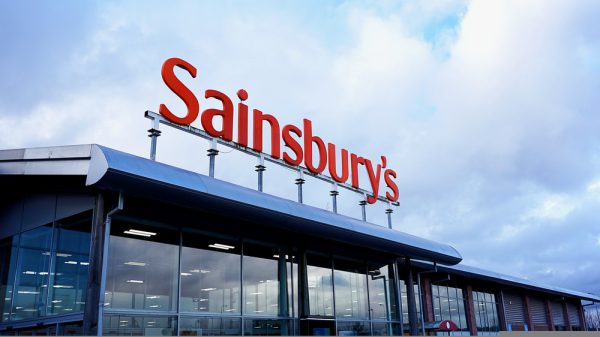As consumers continue to struggle with the pressures of soaring food prices, the UK government is understood to be looking to introduce a price cap on ‘basic’ grocery items.
While this idea, which is understood to be voluntary for UK supermarkets, is designed to help struggling households, the big grocers are resistant to the plans.
Asda chairman Lord Stuart Rose claimed they are “backward-looking” and could have “unintended consequences” while Iceland CEO Richard Walker says “price caps don’t work”.
“We operate in one of the most competitive industries on the planet, and actually, if you look at our margins as a business, they’ve plummeted over the last 10 years because the market has got more competitive,” Walker told BBC Breakfast this week.
But what do the plans involve, would they damage the sector, or are supermarkets too quick to dismiss the proposals?
What do the proposals involve?
Last month, the government began discussing plans for a price cap on basic food items such as bread and milk as prices rose by 19.1% in March, the highest annual rate in over 45 years.
Health secretary, Steve Barclay told BBC One’s Sunday with Laura Kuenssberg programme that the proposals were “about having constructive discussions with supermarkets about how we work together, not about any element of compulsion”.
A government spokesperson told the Financial Times that while it recognises “retailers operate on low margins,” they were in talks with them to see “what can be done to kep prices as low as possible”.

If it were to be adopted by UK supermarkets, the price cap would follow a very similar model to that introduced in France earlier this year.
Supermarkets in the country agreed to a three month “anti-inflation deal”, which means that French households get to buy certain items “at the lowest possible prices”.
French economy minister Bruno Le Maire said that grocery groups would be allowed to choose which essentials they offer in the anti-inflation basket, but that discounts would cost them “several hundred million euros” in lower profit margins.
However, analysis from the British Retail Consortium (BRC) suggests that a basket of basic grocery prices in the UK is already up to 29% cheaper than the same basket in other large European economies, including France.
Why is the food industry against a price cap?
When talk of the UK price cap emerged, many leading figures in the grocery industry were quick to dismiss the idea.
Lord Rose termed a price cap “backward looking”.
He told Sky’s Ian King Live programme: “In real terms, the cost of food, the cost of clothing, the cost of electronics has come down over the last 20, 30, 40 years, largely due to the efficiency of retailers.”
He continued: “Governments of any complexion owe us a debt of gratitude, and this recent speculation over the last couple of days about fixing prices is, frankly, rather backward looking.”.
He also said that supermarkets were very efficient businesses and pointed out that profits from the big groups have fallen over the past year as they did not pass on much of the inflationary cost prices to consumers.
Back in April, Tesco revealed pre-tax profits had plunged 50% to £1bn for the year to February. Meanwhile, Sainsbury’s underlying pre-tax profit dropped from £730m to £690m this year as it tried to keep prices low.
Iceland’s Walker agrees: “We operate in one of the most competitive industries on the planet, and actually, if you look at our margins as a business, they’ve plummeted over the last 10 years because the market has got more competitive.”
In fact, he claims the supermarket doesn’t “really make any money at the moment” and loses money on essentials like milk.
BRC director of food and sustainability, Andrew Opie also condemns the proposals, claiming the price cap “will not make a jot of difference to prices”.
He explains that the high food prices consumers are facing are a result of the rising cost of energy, transport, and labour, as well as higher prices paid to food manufacturers and farmers.
“The UK has helped to keep British food among the most affordable of all the large European economies,” he claims.
While many critics have accused supermarkets of “greedflation,” Sainsbury’s CEO, Simon Roberts said last month that grocery sector had “absolutely not” been profiting from high prices.
Since the beginning of the cost-of-living crisis, many of the UK’s largest supermarkets have launched initiatives to keep prices low, such as price lock campaigns and re-vamped loyalty scheme models.

Additionally, as commodity prices began to fall for wheat and butter, retailers including Sainsbury’s, Tesco, Lidl and Morrisons have been quick to slash the prices of bread and butter.
Opie adds: “As commodity prices drop, many of the costs keeping inflation high are now arising from the muddle of new regulation coming from government. Rather than recreating 1970s-style price controls, the government should focus on cutting red tape so that resources can be directed to keeping prices as low as possible.”
Retail specialist Phil McMahon says that the government is “demonstrating some political and economic ignorance” by suggesting the price cap, following the failure of the 1970’s statutory price controls.
He says a price cap would “promote anti-competitive practices” and “incentivise businesses to charge the highest permissible price”.
“While that might be good news for shoppers now, it could be terrible news in the long run. Economic circumstances change, and if the price of food production was to decrease significantly then shoppers would not reap the benefits.”
Walker also points out that if it was forced to sell at a lower cost and it’s already losing money that would force supermarkets to “put more pressure on the farmers”.
How else could the government help consumers?
With the price cap suggestion failing to gain traction with UK supermarkets, McMahon suggests the government should instead address the source of inflation rather, than the symptoms.
“Capping prices doesn’t address the underlying causes of the problem,” he says.
“Reducing red tape around imports and exports, and making it easier to fulfil labour shortages with foreign workers would go a long way towards helping, but these things need to happen now.
“Increased welfare payments for the worst-off are warranted, and this is a more sensible and targeted policy than implementing price caps that would benefit even those who don’t need them.”
Grocery retail expert Karen Green, author of Buyer-ology, also deems the price cap a “bad idea,” and says that getting the government involved in pricing “goes against natural trade”.
Green tells Grocery Gazette that if it were to go ahead, the cap would be “very difficult to manage” as the general consensus of what constitutes ‘basic’ food items could massively vary among the UK population.
“If a supermarket was to price cap a basket of 30 items, how often do you review it? Prices go up and down like a yo-yo, so do you have a meeting once a week or once a day,” she questions.
Green, who lives in France, says that the country’s food price cap hasn’t personally made a difference to her grocery shopping bill, however, the fuel cap that was introduced in February 2023 has.
She suggests that the UK should adopt a similar strategy to cap fuel, instead of basic foodstuff.
“Looking at fuel and energy is simpler than food, because there is already control over that mechanism. The politics seems to be, let’s keep the supermarkets under control and help people with bread and butter. But actually, if we control fuel prices, who’s going to suffer? It’s going to be the government because of course they won’t get as much revenue.”

While consumer watchdog, Which? agrees that a food price cap “won’t touch the sides,” head of food policy Sue Davies claims that the government and supermarkets should still be working together to address the higher costs faced by millions of people who rely on convenience stores where budget line items are not stocked.
Which? found that a shopper buying groceries each week at a Tesco Express would spend an extra £800 annually than for the same shopping basket in a larger Tesco store or online.
“Ministers should prioritise securing commitments from supermarkets to stock a healthy and affordable budget range across their stores, including convenience stores and ensuring pricing is easily comparable so people can see which items offer the best value,” Davies adds.
While the industry is not behind the government’s proposed food price cap, it’s clear that some sort of intervention needs to take place to ease the financial burden that the cost-of-living crisis has brought on UK consumers.
Whether the solution is cutting red tape, capping fuel prices, or increasing the access to value food, supermarkets, charities and consumers alike are urgently waiting on the government to make its next move.










